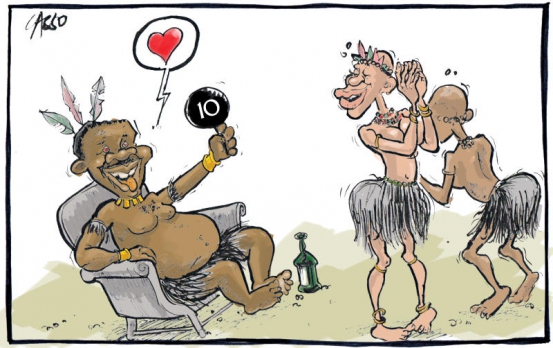×
The Standard e-Paper
Stay Informed, Even Offline

NAIROBI: My mother and I had just settled for breakfast when we heard an urgent rapping on the front door. I opened it to reveal a fat gentleman with a shuka, bearing his likeness, slung over one shoulder. Stuck in his hair was a colourful feather. “Madam,” he called to my mother who had joined us at the door, “do you have a marriageable daughter?” My mother’s jaw dropped, and I am certain my eyes must have opened wide at the oddness of the question.